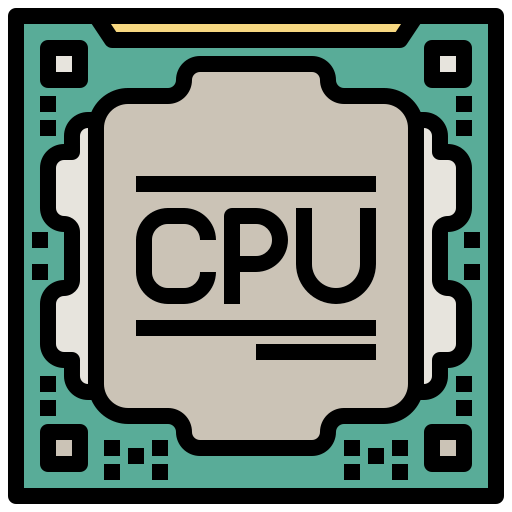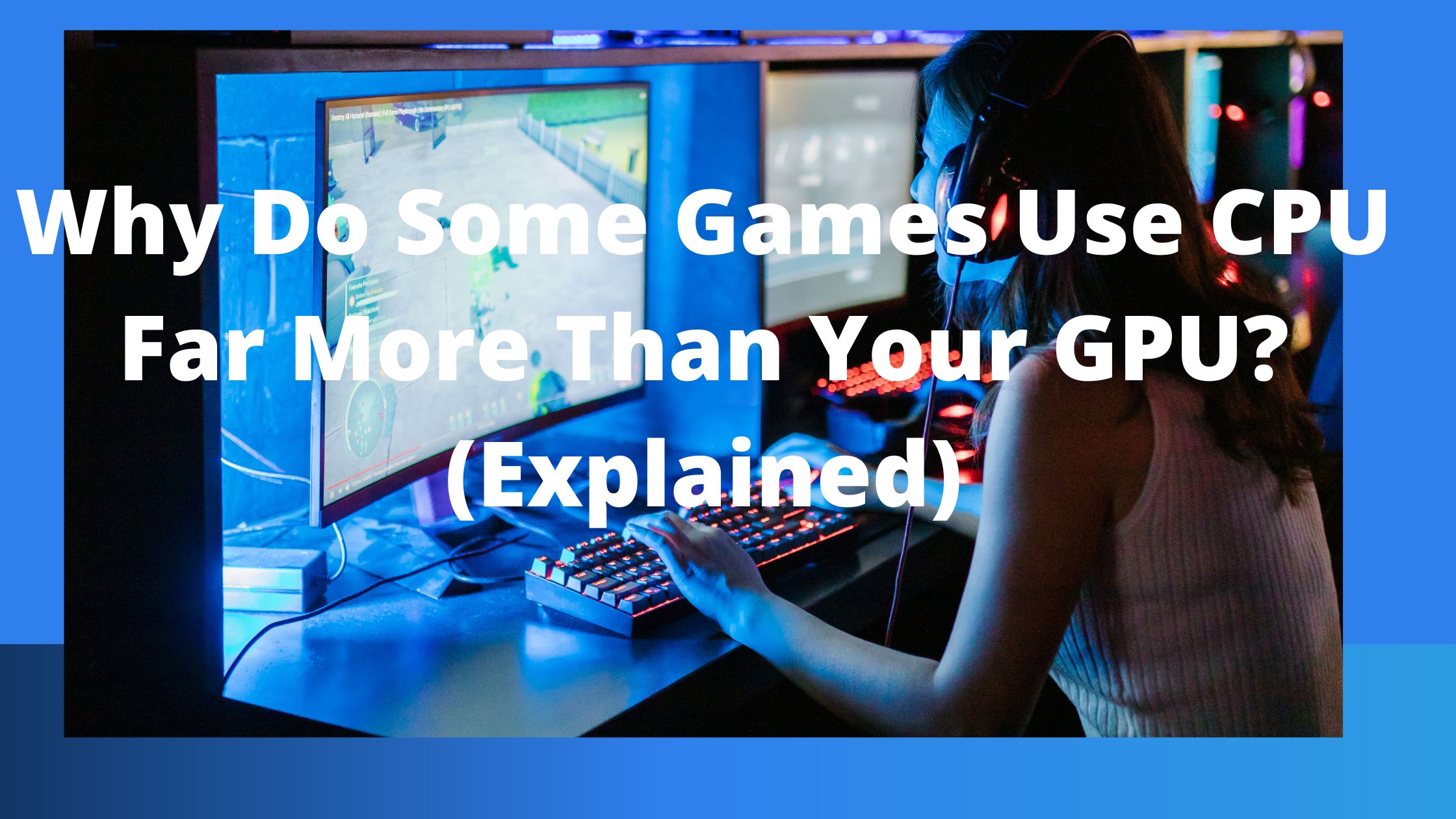It depends on the type of the game you play as well as the settings. It is generally accepted that if you want high FPS with your games, you must have a high-end graphics card.
However, occasionally even the finest GPU will deliver sluggish graphics and a poor frame rate.
If you consult a gaming specialist, they’ll inform you that your computer is CPU-bottlenecked, leading you to question whether the conventional wisdom is accurate.
Which should you invest more money in the CPU or the GPU?
The solution is more complicated than you may imagine.
To enable you to make an informed choice, this article will provide all the information you want.
The Reason Some Games Use CPU Far More Than Your GPU.
It depends on the type of the game you play and the settings though the most important element of gaming hardware is the GPU.
But when your CPU, GPU, RAM, and display are all functioning properly, you can enjoy the greatest gameplay.
An ideal frame rate is provided by a balanced arrangement, which also prevents bottlenecks.
In general, you require a powerful GPU (such as the GeForce RTX 20 or 30 series), at least a Ryzen 5 or Core i5 CPU, 16 GB of RAM, and a display that supports Full HD (1920 x 1080) resolution with at least a 60 Hz refresh rate.
Because some games, like Civilization, place additional stress on the CPU, you should also think carefully about the game(s) you intend to play.
But the majority of contemporary games, including Red Dead Redemption and Shadow of the Tomb Raider, are GPU-intensive.
Here are the function of the various hardware elements in your computer and how they’ll impact your gaming experience below:
-
Central Processing Unit (CPU)
The CPU is a multi-purpose processor that can carry out a wide variety of functions.
You can access spreadsheets, browse the web, edit films, and participate in online meetings thanks to the computer’s brain.
When playing games, it mostly handles the physics and logic of the game.
It records user activity, determines how it affects the game sceneries, and communicates the findings to the GPU.
In essence, it specifies the appearance and behavior of each game item.
Let’s look at two straightforward examples of the CPU’s work to illustrate its function.

-
Machine Learning And Non-Player Characters
You interact with the game’s universe, which is made up of diverse adversaries, fields, and objects, while you play a game.
There must be a set of guidelines that regulate how you interact with the game world.
For instance, you must be able to put the ball through a basket to score a goal in a game of sports.
These rules are set by game developers, and the CPU puts them into action.
It keeps the score and determines whether the ball you tossed landed in the basket.
The CPU is also in charge of generating the level of adaptation that some game conditions may exhibit depending on your level of expertise.
-
Detecting collisions and hitboxes
If you enjoy first-person shooter games, you are aware that accurate aim is necessary to eliminate the adversary on your first attempt.
You might be surprised to learn that the CPU determines if and where your bullet will impact the target’s body.
Numerous hitboxes are generated and tracked, which are invisible 3D shapes related to the game’s characters.
The same concepts are applied to determining whether a punch lands in a fighting game or to detecting collisions in a racing game.
Hitboxes are solely the responsibility of the CPU because they are invisible.
-
Graphics Card
The graphics processing unit (GPU) is a specialized processor that excels at a few tasks.
It can carry out countless parallel calculations for graphics-related tasks.
By using the frame details from the CPU to display forms and scenes that you can see, the GPU creates the game’s visuals.
In the game, it generates objects such as water and even shapes, reflections, hues, illuminating effects, and patterns.
More detailed and higher-quality images can be produced by using a GPU with greater processing power.
The resolution that you can play your game at is also impacted by the graphics hardware.
Additionally, some games use frame-wide filters to give the scene a specific vibe (e.g., being futuristic or gloomy).
Note: It’s common to interchange the phrases graphics card and GPU; most of the time, this won’t cause any issues.
They are slightly different, though.
The processor that handles the computations is known as the GPU, but you cannot purchase a solo GPU.
You require a graphics card with cooling fans, PCI Express ports, and virtual memory.
-
RAM
RAM is the short-term memory that houses game-related information for the CPU to access quickly.
In each cycle, the CPU can only carry out one operation.
There are billions of processes and millions of variables used in the execution of a single game.
All those variables are kept in temporary storage by the RAM so that the CPU can quickly access them when necessary.
For contemporary games like Shadow of the Tomb Raider, 16 GB of RAM is suggested.
If you have 8 GB of RAM, you might be able to run these games, although lags are likely.
To make room in your RAM for your games, you might also need to end a few background processes.
Because Windows 10/11 uses about 3 GB when it loads, eight GB is insufficient.
Furthermore, the actual amount of RAM you have access to is just 7.8 to 7.9 GB, not the full nominal value of 8 GB.
You now essentially have less than 5 GB of RAM.
Two problems can occur when you don’t have enough RAM:
A sufficient portion of the cosmos cannot be preloaded by the game, which frequently results in black displays.
There isn’t enough room in the RAM to store all of the game’s data, so it must be moved in and out of the hard drive.
This causes the CPU to work harder than necessary and wastes clock cycles that could be used to run the game.
Without adequate RAM, you’ll also experience substantially slower loading times and more crashes.
Final thought
In our guide today, I hope that you have found something useful that will help understand why your games use CPU far more than GPU.
Related article:
Is it Possible to use a NVIDIA GPU with a AMD CPU? (Explained)

